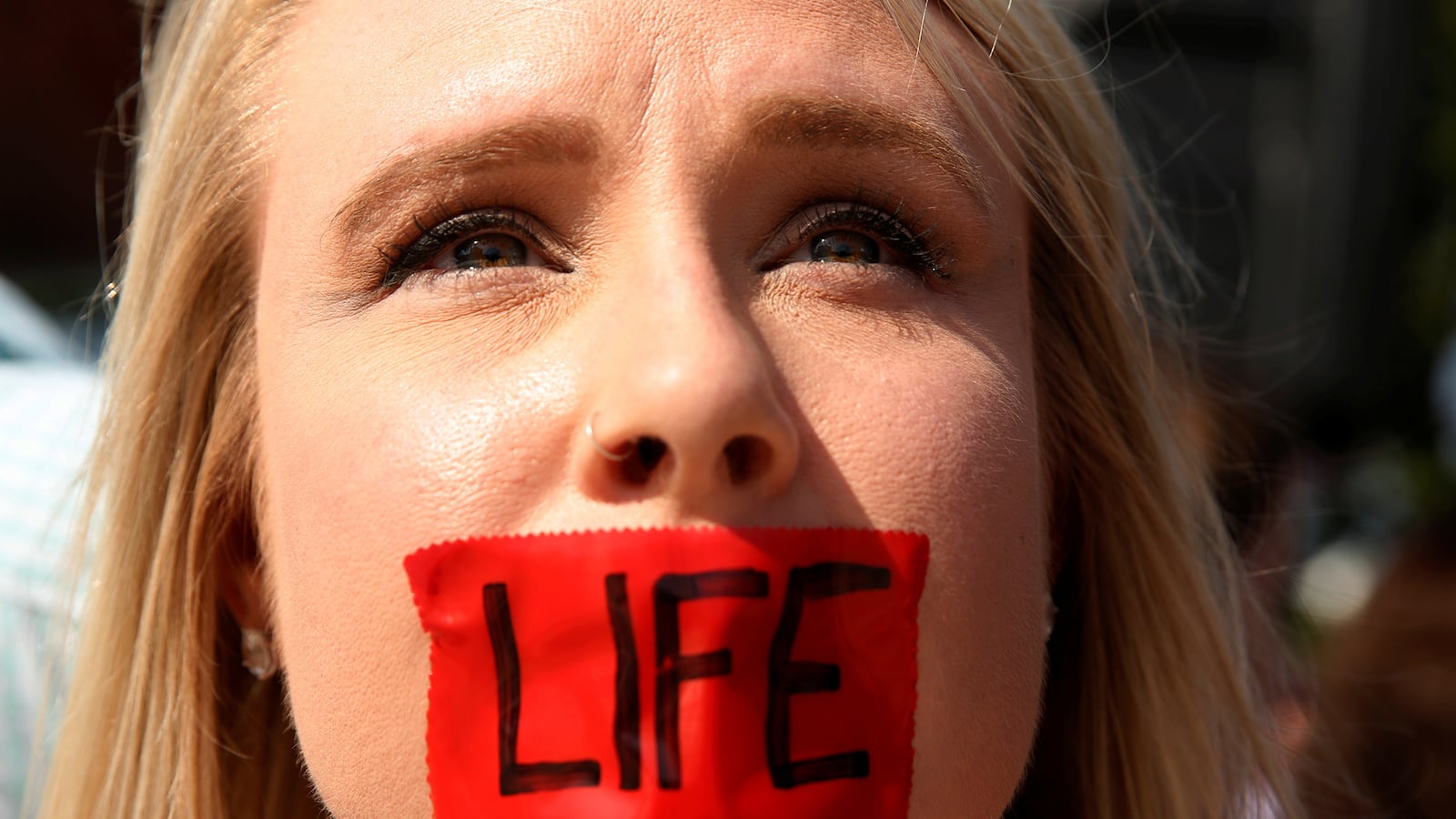One of the most annoying yet enduring stereotypes about women, often perpetuated by men, is that we never quite outgrow the mean girls cliquishness that defines our childhoods. The thinking goes that we simply replace spats about who can sit at which table in the cafeteria (and with whom) with insults about a professional rival’s appearance, or worse, her parenting skills. But this week we got a powerful reminder that men don’t have to lift a finger to reinforce negative stereotypes about women or to divide us. We’re great at doing that ourselves.
This week marks two major events: the inauguration of Donald Trump, and a major Women’s March comprised of hundreds of thousands of women (and men who support women) taking to the streets of Washington D.C. and other major cities to make sure the voices of women are heard loud and clear at the start of this new administration. According to my friends and acquaintances participating in the various marches they want to voice their displeasure with the incoming president’s political agenda, which may be harmful to women, and with his behavior and rhetoric, which includes a track record of demeaning women.
They want to make sure the president – and the world – knows that the eyes of women are watching and will be holding him accountable. But recently the organizers of the March announced that one group of women would not be welcome as partners, despite wanting to participate. The reason? This group of women does not support abortion rights. To be more accurate, the real reason is that some self-described feminists on social media decried the inclusion of New Wave Feminists, arguing that feminism does not include women who do not support abortion.
According to Merriam Webster there are two definitions of feminism: “the theory of the political, economic and social equality of the sexes.” The other definition: “organized activity on behalf of women’s rights and interests.”
Based on that second definition alone and the fact that they wanted to join a March in solidarity with other women for women’s interests, New Wave Feminists should be allowed to sit with the other feminists in the cafeteria, or in this case to march with them. But even based on the other definition, no self-respecting woman who genuinely cares about seeing the lives of women and girls improve over the next four years could justify excluding them.
Here are the reasons why. For starters, based strictly on the numbers, the issue that most impacts women and girls – and that a majority of women care most about-- is not abortion. According to Pew, while abortion is deemed a “very important” voting issue by a majority of self-described “liberal Democrats” among female voters specifically, there were 11 issues (out of 14) that rated higher in importance among women than abortion during the 2016 presidential election. Some of those issues included gun policy, racial injustice, immigration and education. Pew’s list didn’t even include other more specific issues that certainly matter to women, such as affordable childcare, sexual assault, pay equity or contraception access. (Pew specifically asked about abortion but not other reproductive policy issues.)
When it comes to issues like contraception usage and access, there is a great deal of consensus among women, much more so than on the issue of abortion. While just 54% of women identify as “pro-choice,” according to Guttmacher, 99% of sexually active women have used contraception. To put these numbers in even greater context, a 2012 Gallup poll found that just 38% of Americans deemed abortion “morally acceptable,” yet 89% of Americans deemed birth control “morally acceptable.” Morality and the law are two fundamentally different issues. But, with Obamacare under attack, it is very possible that it will soon become harder for many women to afford contraception should the mandate requiring birth control to be provided with no copay be reversed. In other words, an issue that affects most women and families, and that a majority of Americans agree on, is facing a very real and immediate threat under the new president.
Furthermore, incoming Vice President Mike Pence is an advocate of religious exemptions. While he generated extensive coverage for the impact the Religious Freedom Restoration Act he signed into law in the state of Indiana may have on members of the LGBT community, there has been scant attention paid to the impact such laws can have on women. The Hobby Lobby case, in which the Supreme Court granted employers the right not to cover certain contraceptives for religious reasons, such as IUDs and the Plan B pill, was widely covered and seen as a setback for proponents of contraception access. But much more alarming is the possibility that we could start seeing cases in which more doctors and pharmacists feel emboldened to decline to prescribe a woman birth control due to their own religious objections, say over the fact that the woman is unmarried.
There are other issues that also disproportionately affect women that remain troubling question marks in the age of a Trump presidency. There is a very real fear among survivors of sexual assault, and activists, that the new administration will not be as vigilant in holding colleges and universities accountable as the Obama administration has been. Trump’s own track record in bragging about manhandling women certainly does not inspire confidence. In fact among many women it inspired disgust. Not all of those women are Democrats and not all of those women support abortion rights. But some of those women wanted to send a message to the incoming president just as much as their progressive sisters do. Yet those women were just sent a message that if they don’t support abortion rights—they can’t sit at the cool kids table.
The truth is, right now progressive women actually need conservative women much more than conservative women need them. With Republicans controlling the White House, the House, the Senate, and soon the Supreme Court, progressive women need as many allies as possible, not just the ones who agree with them on every single issue. And with an incoming Commander-in-Chief who has proven that he sees women alternately as sexual objects or verbal punching bags, now more than ever is the time women should be working together, not against each other, in order to make the best of the next four years, and to try to ensure a brighter, safer, future for our mothers, our sisters, our daughters, our nieces and our friends.
Even if we don’t always agree with them.






